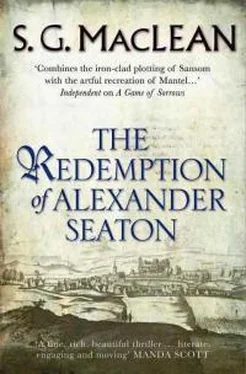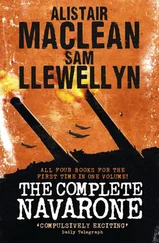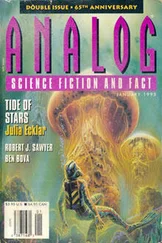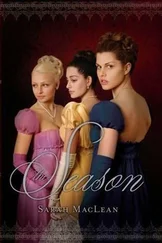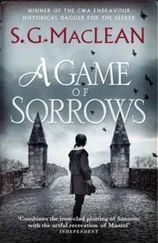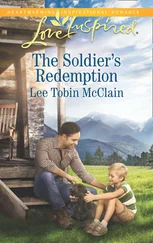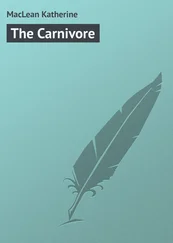I returned to town the long way, by way of the Gallowhill. And there I came upon the hanging tree. I stood beneath the gibbet and determined that Charles would not swing from it. If I accomplished nothing else in my now Godless existence, I would accomplish that. I spent a moment looking down over the town and out to the sea beyond, asking myself whether the truth was to be found there, or whether it had already been washed away. Washed away like the river Deveron endlessly running out to the sea. I recalled to myself the lines of Alexander Craig, the poet, who had built his house on the Rose Craig, looking imperiously out over the town. Charles Thom, Marion Arbuthnott, perhaps even Patrick Davidson himself had played out their last tragic act together beneath his walls last night. His words took on for me a meaning that I doubt he had meant to give them.
Come my love and live with me
And we shall see the rivers run
With delicate and daintie din
And how my Dovern night and day
With sweet meanders glides away
To pay her debts unto the sea.
I believe I stood a long time there, beneath the gibbet, meditating on those lines, but I have no notion of how long it might have been. I was aware of feeling colder as the haar drifted in from the sea and obscured some of the burgh from my view. Slowly, the sound of a drum brought me from my reverie. The drum that preceded the hangman. I waited, my eyes closed, and the drum came nearer. A hand reached out and touched my neck, a human hand. For a moment, a brief moment, my heart stopped beating in my breast.
‘Oh, Mr Seaton, a mercy, Mr Seaton, please God.’ Before I had opened my eyes and located the voice in my memory, a rougher hand pulled the first away. A rougher voice called out – one of the town serjeants.
‘Janet Dawson. Do not lay your filthy fingers upon any citizen of this burgh. You have been told the judgement of the magistrates – do not pretend ignorance!’
And then the other serjeant began to intone, with evident pleasure, ‘You are to be banished furth of these bounds. A lewd and licentious liver, a whore, a keeper of codroche houses. You and your sister also. You are to be scourged by the hangman from this place hence, and never to return within the freedom of this burgh, on pain of death.’ He turned to the burgh hangman, whose was the rough hand that had pulled Janet Dawson’s pleading fingers from their touch, a gentle touch, on my neck. ‘Strip her to the waist.’
I turned my face away, unable to watch as Janet Dawson, who had had her whore’s dignity, was deprived of the dignity of a woman. I heard the hangman raise his whip and the hurling whoosh as the knotted leather swept towards her bare flesh. It was the punishment, all too readily used, meted out by the burgh fathers to any woman whose honour was questioned and who could not prove herself beyond doubt. But the Dawson sisters’ whoredom was as established as it was notorious. That Janet was now being scourged from the burgh on pain of death should she ever return I could not comprehend. Again I heard the demented whoosh of the scourge. And I heard a voice call out, my own voice; it shouted ‘No!’ The whip crashed down on the woman’s side but was not raised a third time. The town’s officer looked at me. ‘I take no pleasure in it, Mr Seaton.’
‘Then dress her again, and leave her be to quit this place unmolested. You have done the magistrates’ bidding.’ I looked at Janet as, cowering, she pulled her torn bodice over herself and scrabbled in the dirt for her shawl. ‘I will testify to that.’
The officer uttered a harsh ‘Leave her,’ to the hangman, who looked disappointed of his prey. Janet rushed at me all of a sudden, grabbing my collar. The officer made to seize her but I held him away. She spoke desperately to me. ‘A word, a kind word, Mr Seaton. A coin. Any coin. To help a poor woman, a kind word, Mr Seaton.’ I fumbled in my pocket and drew out two pennies – of little use to her as they were. She grabbed them and raised her face to mine, as if she would kiss me. But she did not kiss me. She whispered in haste in my ear, just as they came to drag her off me. ‘“James and the flowers,” Mr Seaton. The last words he ever spoke.’
I stood and watched, as they recommenced the scourging and drove her from the burgh bounds at the beat of their drum.
The grammar school was held again the next day, after its macabre holiday. Sounds of high spirits and excitement came from Gilbert Grant’s classroom, but my own scholars were more subdued than I had expected them to be. A little before midday, one of Gilbert Grant’s scholars came bursting into my room. He was breathless, and his words tumbled over each other. ‘Mr Seaton, Mr Seaton. You are to go at once to the tolbooth. You and the master, for you are both wanted there. You are to lose no time.’ In the room next door, Gilbert Grant had already replaced his robe with a good thick cloak and confirmed somewhat breathlessly that we had been sent for. The sense of apprehension that had been my constant companion since the previous day grew. I gathered my own hat and cloak and we set off for the tolbooth, leaving word with Mistress Youngson that there would be no school that afternoon.
At the tolbooth, we were allowed to pass without question, and were soon shown with little ceremony through the great timber door of the council chamber. I had entered this room only once before – on the same occasion that Gilbert Grant had taken us boys to the tolbooth jail two floors above, he had also been allowed to bring us into this hallowed place. I could still remember the words of the old provost, whose name I had now forgotten – another Ogilvie, no doubt – we stood in awe in the oak-panelled room with its huge, finely polished table and its ornately carved chairs. ‘The room above, boys, you must ever strive to avoid. This, this,’ he had repeated with a proprietorial sweep of his hand, ‘is what you should aspire to.’ I never had.
Waiting for us in the room were not only the provost and the baillie, but also Edward Arbuthnott and Thomas Stewart, notary public of the burgh of Banff. For the notary, unlike for Baillie Buchan and James Cardno, the world did not begin and end with the kirk. He was not ungodly, but he was a man of the world, a measured man who understood the needs and failings of his fellow creatures without seeing sin at the root of them all. Where he had been yesterday I did not know, but I was heartily glad to see him today. Stewart did not look up when Grant and I entered the room, engaged as he was on the removal of some papers from the open chest at the far end of the room. The apothecary looked somewhat shaken, ill at ease, but it was the demeanour of the provost that I marked most. His complexion was of a greater pallor than I had ever seen it, and his hand shook so that he had to steady himself by leaning on the back of a chair. He never once took his eyes off Thomas Stewart and the papers.
My companion was the first to speak. ‘We have come, provost, as we were sent for. What business here requires us?’
Walter Watt, scarcely hearing, I think, made no response. It was the baillie who replied. ‘We require your assistance, and that also of Mr Seaton there,’ he nodded towards me in a perfunctory manner, ‘in the examination of these papers.’ He indicated the chest over which Thomas Stewart was again bent. ‘The notary and I went to Arbuthnott’s this morning with the purpose of examining Charles Thom’s belongings in the hope of finding some evidence of evil intent against Patrick Davidson, since he denies involvement in the crime. I am glad to say – and I pray you would mark this, Mr Seaton – that we could find nothing amongst the belongings of Charles Thom to suggest anything other than a blameless life on the part of that young man.’ The involuntary relaxation of my shoulders and hands must have been noticed, for he continued, emphasis on his next words, ‘However, the absence of evident guilt is not the same as the proof of innocence, and that we have not found.’
Читать дальше
